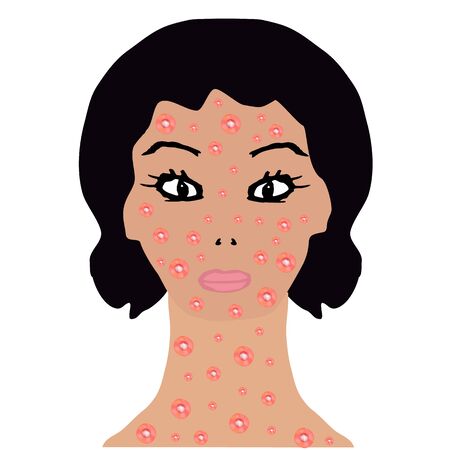What Are Deep Conditioning Hair Masks?
Deep conditioning hair masks have become a staple in British hair care routines, especially with our unpredictable weather and the impact of hard water in many regions. Unlike your standard rinse-out conditioners, deep conditioning masks are intensive treatments formulated to provide your locks with a boost of moisture, nourishment, and repair. Typically packed with richer ingredients such as natural oils (think argan, coconut or shea butter), proteins, and vitamins, these masks work by penetrating deeper into the hair shaft than everyday conditioners. The result? Noticeably softer, shinier, and stronger hair after just one use.
In the UK, where many people face challenges like frizz from humidity or dryness from central heating, deep conditioning masks can be a game-changer. They’re designed to tackle issues like breakage, split ends, dullness, and even colour fade from harsh tap water. Here’s a quick comparison to help you see how deep conditioning masks differ from regular conditioners:
| Regular Conditioner | Deep Conditioning Mask | |
|---|---|---|
| Main Purpose | Daily detangling & light moisture | Intensive repair & deep nourishment |
| Application Time | 1-2 minutes | 5-30 minutes (or overnight) |
| Texture | Lightweight cream or lotion | Thicker, richer cream or balm |
| Ingredients | Basic moisturisers & silicones | Concentrated oils, proteins & vitamins |
| Frequency of Use | Every wash (daily or every few days) | Weekly or fortnightly treatment |
If you’re serious about reviving tired tresses battered by British weather or heat styling, adding a deep conditioning mask to your routine could be just what your hair needs. Whether you’ve got fine hair prone to limpness or thick curls crying out for hydration, there’s a formula out there suited for everyone across the UK.
2. Why Deep Conditioning Matters for British Hair Types
Deep conditioning is not just a luxury; it is almost a necessity for those living in Britain. The unique combination of environmental factors and diverse hair textures found across the UK makes deep conditioning particularly relevant. Here’s a detailed analysis of why British hair needs that extra nourishment and care.
Weather-Induced Frizz: A Persistent British Problem
The UK’s weather is famously unpredictable, with frequent rain, high humidity, and sudden cold spells. These conditions can wreak havoc on hair, leading to persistent frizz and lack of manageability. Deep conditioning masks are designed to replenish lost moisture, seal the cuticle, and restore smoothness, making them invaluable during damp or blustery days.
The Hard Water Factor
Many regions in Britain experience hard water, which contains high levels of calcium and magnesium. Over time, these minerals build up on the hair shaft, leaving it feeling rough, looking dull, and prone to breakage. This makes it harder for regular conditioners to do their job effectively. Deep conditioning masks penetrate more deeply, helping to combat the negative effects of hard water and restore softness.
| Common British Hair Concerns | How Deep Conditioning Helps |
|---|---|
| Weather-induced frizz | Infuses moisture and controls flyaways |
| Hard water damage | Removes mineral build-up and restores shine |
| Diverse hair textures (curly, wavy, straight) | Tailors hydration and repair to specific needs |
Diverse Hair Textures Across the UK
The UK is home to an array of hair types—from poker-straight to densely coiled curls—often within the same family. Each texture has its own set of challenges:
- Straight hair may become limp and oily without proper moisture balance.
- Wavy hair is prone to frizz and loss of definition due to humidity.
- Curly and coily hair types need intense hydration to maintain curl pattern and reduce brittleness.
This diversity means that one-size-fits-all solutions rarely work. Deep conditioning masks offer targeted treatments that can be tailored—whether you’re using protein-rich formulas for strengthening or moisture-boosting blends for hydration.
Why Deep Conditioning Is Essential in Britain
Given these localised challenges, regular deep conditioning becomes essential for maintaining healthy, resilient hair in Britain. It not only addresses immediate concerns like dryness and breakage but also builds long-term resistance against ongoing environmental stressors—helping every Brit enjoy softer, shinier, and more manageable locks all year round.

3. Popular Ingredients in UK Deep Conditioning Masks
When it comes to deep conditioning hair masks sold across Britain, the ingredient list often reflects both global trends and local botanical heritage. Understanding what goes into your mask can help you choose the most effective formula for your unique hair needs. Here’s an overview of the nourishing ingredients commonly found in British-sold deep conditioning masks, with a particular spotlight on native botanicals and their benefits for different hair types.
Key Nourishing Ingredients
| Ingredient | Origin | Main Benefits | Best For Hair Type |
|---|---|---|---|
| Argan Oil | Imported (Morocco) | Intense moisture, shine, tames frizz | Dry, coarse, curly |
| Shea Butter | Imported (West Africa) | Deep hydration, softening effect | Very dry, damaged, thick hair |
| Bramble (Blackberry) Extract | Native (UK hedgerows) | Rich in antioxidants, protects and revitalises dull hair | Normal to dull, colour-treated |
| Nettle Leaf Extract | Native (British countryside) | Strengthens roots, promotes scalp health, reduces excess oiliness | Fine, thinning, oily-prone scalps |
| Honey & Beeswax | Local (British beekeepers) | Nourishment, natural humectant for moisture retention | Brittle, split ends, chemically treated hair |
| Coconut Oil | Tropical (global supply) | Smooths cuticle, reduces protein loss during washing | Curly, textured, or porous hair types |
| Lavender Oil/Extracts | Native (English lavender fields) | Soothe scalp irritation, promote relaxation during treatment time | Sensitive scalps or stressed hair routines |
| Seaweed Extracts (e.g., Bladderwrack) | Coastal UK waters | Mineral-rich nourishment and hydration boost without heaviness | Limp or fine hair needing lightweight care |
The Importance of Local Botanicals in British Formulations
The British beauty market has embraced its own landscape by incorporating indigenous ingredients like bramble extract and nettle leaf into deep conditioning masks. These botanicals not only reflect the UKs rich biodiversity but also offer targeted benefits: nettle helps balance oil production for those with finer or greasier hair, while honey from local apiaries provides gentle yet effective moisture for brittle ends. The preference for locally-sourced components ties into wider trends around sustainability and supporting home-grown industries.
Selecting the Right Mask by Hair Type and Ingredient Profile
Your ideal deep conditioning mask will depend on both your hairs texture and its current condition. For example:
- If you have fine or limp hair: Opt for masks featuring seaweed extracts or nettle to strengthen without weighing down strands.
- If you have thick or coily hair: Richer blends containing shea butter and coconut oil deliver long-lasting moisture and help manage frizz.
- If your main concern is scalp health: Lavender and nettle offer soothing properties that calm irritation while promoting growth.
A Final Word on Ingredient Transparency in the UK Market
The rise in demand for clean beauty means many UK brands now clearly list their hero ingredients and their origins. When shopping for a deep conditioning mask in Britain, take a moment to scan the label—look for familiar botanicals alongside globally-loved oils to get the best of both worlds tailored to local needs.
4. How to Use Deep Conditioning Masks Effectively
Getting the best out of your deep conditioning hair mask requires more than simply slapping it on and hoping for the best. Here’s a step-by-step guide tailored for British routines, considering our unique weather, water hardness, and lifestyle factors.
Step-by-Step Guide for British Hair Care Routines
- Prep Your Hair: Begin by shampooing with lukewarm water – this helps open the cuticle and removes product build-up typical of hard UK water. Towel-dry until damp but not dripping.
- Apply Generously: Using a wide-tooth comb or fingers, distribute the mask from mid-lengths to ends, focusing on areas most prone to dryness due to wind and central heating.
- Leave It In: For regular care, 10-20 minutes is usually sufficient. For damaged hair or after exposure to cold winds, leave it in for up to 30 minutes. Cover with a shower cap or warm towel for deeper penetration—ideal during chilly British winters.
- Rinse Thoroughly: Use cool or lukewarm water to seal the cuticle and lock in moisture. This is particularly important in hard water regions like London or Birmingham, where residue can build up easily.
- Style as Usual: Avoid heat styling immediately after; let your hair air dry when possible for best results.
Frequency Recommendations by Hair Type & UK Climate
| Hair Type | Recommended Frequency | UK Climate Tip |
|---|---|---|
| Fine/Oily | Every 2 weeks | Avoid roots; focus on ends to prevent greasiness exacerbated by humid summers |
| Normal/Combination | Weekly | Adapt frequency during seasonal changes, especially after exposure to rain or wind |
| Dry/Curly/Coloured | 1-2 times per week | Increase use during winter months when indoor heating dries out hair faster |
Maximising Results: British Best Practices
- Hard Water Defence: Consider a clarifying shampoo once a month if you live in an area with hard tap water—it’ll help your mask penetrate better.
- Tame Frizz: After rinsing, finish with a cold rinse to combat frizz brought on by damp or windy conditions.
- No Rush: Dedicate time at the weekend—turn masking into a self-care ritual that fits seamlessly into British lifestyles.
- Use Local Products: Opt for masks formulated for UK weather and water conditions—these will typically contain ingredients tailored to local needs.
This approach ensures that whatever the British climate throws at your hair—be it blustery gales, sudden downpours, or relentless central heating—you’re equipped to keep your locks nourished, smooth, and resilient year-round.
5. Top-Rated Deep Conditioning Hair Masks Available in Britain
Britain’s love for top-notch haircare is reflected in the abundance of deep conditioning hair masks available across high street shops, salons, and online retailers. From heritage brands to innovative newcomers, the UK market offers a wide array of choices tailored to every hair type and concern. Below, we round up some of the most popular and effective deep conditioning masks you’ll find across Britain, complete with a detailed analysis of their strengths and weaknesses.
| Product Name | Main Ingredients | Best For | Pros | Cons | Average Price (GBP) |
|---|---|---|---|---|---|
| Olaplex No. 3 Hair Perfector | Bis-Aminopropyl Diglycol Dimaleate | Damaged, coloured hair | Professional-grade repair; salon results at home; strengthens broken bonds | Higher price point; small bottle size | £28-£32 |
| Aussie 3 Minute Miracle Reconstructor | Australian Macadamia Nut Oil | Dry, frizzy hair needing quick hydration | Affordable; works fast; widely available in supermarkets and chemists | Scent may be strong for some; not as intensive as salon brands | £4-£6 |
| L’Oréal Professionnel Serie Expert Absolut Repair Mask | Wheat Protein, Gold Quinoa Extract | Brittle, weakened hair | Luxurious texture; visible shine and softness; frequent offer discounts in Boots/Superdrug | Contains silicones; jar packaging less hygienic than tubes/pumps | £15-£22 |
| Briogeo Don’t Despair, Repair! Deep Conditioning Mask | B Vitamins, Rosehip Oil, Argan Oil, Algae Extracts | Chemically-treated or curly hair types seeking clean beauty formulas | Sulfate/silicone/paraben-free; vegan and cruelty-free; enhances curl definition | More expensive than high street alternatives; subtle scent may not appeal to all | £30-£36 |
| TRESemmé Biotin + Repair 7 Intensive Mask | Biotin, Pro-Bond Complex | Heat-damaged or over-styled hair on a budget | Purse-friendly; easy to find in supermarkets; strengthens after regular use | Might feel heavy on fine hair types; basic packaging design | £5-£8 |
| Maui Moisture Heal & Hydrate + Shea Butter Hair Mask | Aloe Vera Juice, Shea Butter, Coconut Oil, Macadamia Oil | Curls, coils, and very dry textures seeking hydration without silicones or mineral oil | Nourishing natural formula; large tub lasts ages; no silicones/mineral oil/parabens/sulfates | Might weigh down thin or oily-prone hair; scent can be polarising | £9-£12 |
| Kérastase Nutritive Masquintense for Thick Hair | Irisome Complex, Glucose Proteins | Very thick or coarse hair needing deep nourishment | Luxe salon feel at home; intensely moisturises and softens even unruly locks | Premium price tag; best suited for very thick/coarse textures only | £30-£38 |
A Closer Look at What Makes These Masks Stand Out in the UK Market
The British market has seen a shift towards both high-performance professional masks—like Olaplex and Kérastase—and more accessible options such as Aussie and TRESemmé that cater to everyday shoppers. Clean beauty is also gaining ground with Briogeo and Maui Moisture leading the way for those avoiding sulfates and silicones. Accessibility is a key factor: while premium brands are easily found in major department stores like Selfridges or John Lewis and salons nationwide, affordable favourites dominate shelves at Boots, Superdrug, Tesco, Sainsbury’s, and Amazon UK.
The Verdict: Choosing Your Ideal Deep Conditioner in Britain
Your perfect mask depends largely on your hair type, budget and personal values (such as cruelty-free or clean ingredients). If you prioritise noticeable repair after colour treatments or heat styling, Olaplex No. 3 or L’Oréal Professionnel are reliable investments. For curly or textured hair craving natural hydration, Maui Moisture delivers moisture minus harsh chemicals. Budget-conscious buyers will appreciate Aussie’s speed and value while TRESemmé bridges affordability with effectiveness for those battling heat damage. Ultimately, these selections represent the best of British high streets and salons—helping you restore your crowning glory whatever your needs.
6. Expert Advice and Common Myths in the UK
When it comes to deep conditioning hair masks, guidance from British hair professionals can be invaluable, especially given the unique climate and water conditions across the UK. Here, we compile top tips from salon experts and tackle some of the most common misconceptions British consumers have about deep conditioning.
Insights from British Hair Professionals
| Expert Tip | Why It Matters in Britain |
|---|---|
| Adjust Frequency by Hair Type | UK hairdressers recommend once a week for dry or coloured hair, but only fortnightly for fine or oily hair to avoid build-up. |
| Mind Your Water Hardness | Hard water, common in many UK regions, can leave hair dull. Using clarifying shampoo before deep conditioning boosts mask effectiveness. |
| Leave-In Duration | Most British stylists agree: 10-20 minutes is sufficient. Leaving masks on overnight isn’t necessary and may weigh hair down. |
Frequently Asked Questions in the UK
Do I need a different mask for coloured hair?
Yes. British colourists advise choosing sulphate-free masks with added moisturisers specifically for coloured or highlighted hair to combat fading due to hard water and unpredictable weather.
Will deep conditioners make my hair greasy?
This is a common worry, especially among those with fine or limp hair. Experts suggest using lightweight formulas and applying only from mid-lengths to ends to prevent greasiness.
Is it suitable for men’s hair?
Absolutely! Many UK barbers now recommend deep conditioning masks for men with longer styles or those prone to dryness caused by central heating or outdoor sports.
Dispelling Common Myths
| Myth | The Truth According to British Pros |
|---|---|
| “More product means better results.” | A walnut-sized amount is usually plenty; over-applying can leave residue, especially with soft British water. |
| “Only damaged hair needs deep conditioning.” | Even healthy hair benefits from occasional deep treatments, particularly after exposure to wind, rain, or styling tools. |
| “Deep conditioning is only for women.” | This treatment suits all genders and all hair types—hydration knows no boundaries! |
In summary, following expert guidance tailored for British needs ensures that you get the best results from your deep conditioning routine. Don’t be swayed by myths—listen to professional advice and customise your approach based on your unique environment and hair type.


